Disclosure: This page may contain affiliate links, meaning we receive a commission if you decide to make a purchase through our links, but this is at no additional cost to you. Please read our disclosure and privacy statement for more info.
“Is it possible to feel overwhelmed, lost, anxious and totally incompetent as a new nurse and still go on to be an amazing, respected health care professional who LOVES nursing?”
You betcha.
The first step for new nurses feeling incompetent is to believe in yourself and understand this process takes time. Be comfortable with feeling vulnerable. Observe, listen, be kind and approach each patient like they were your own family.
I’m not going to lie. Being a new nurse is hard and for the first 6 months to a year and sometimes longer, you will probably feel more stressed than you ever have.
You’ll give medications late, you’ll confuse your patient’s story during report and you’ll drop all kinds of things in embarrassing, poorly timed situations. How do I know this? Because I did this, probably worse than you.
I hope this post allows you to let go of your fears and gives you the confidence, tools and positive headspace to pursue a career you’ve worked so hard for.
This is part 1 of an exciting 3 part new nursing series I wish I had access to when I first started my nursing career. Part two is called Always Sick as a New Nurse? 10 Tricks to Beat The Blues and part three is titled Advice for New Grad Nurses: How to Stop Feeling Like an Idiot (click the titles to check them out). I hope you love it.
How to Stop Feeling Overwhelmed, Lost, Anxious and Totally Incompetent as a New Nurse
The biggest things I experience both personally and when educating new graduate nurses are:
- Feeling incompetent, stressed and worried you’re always doing the wrong thing
- The fear of asking too many questions
- Feeling like you lack the physical skills to do the job efficiently causing you to waste precious time.
- Problems with time management and having trouble juggling what seems like 100 things at once.
- Medication competency and figuring out why your patient is on a particular drug and how it links to today’s presentation.
Any of those sound familiar?
Below we explore each of the above points in more detail. Here you will learn the skills I teach and implement in my own nursing practice to build resilience and confidence to ultimately provide better care.
Feeling Incompetent, Stressed and Worried
Feeling incompetent as a new nurse is awful. But it will pass. You killed the NCLEX and your board exams and you will master this nursing thing – it just takes time.
To say you’re not alone is an understatement.
I think I cried for the first 2 months… BUT, I came out the other side to now work in Emergency, manage the department and absolutely love what I do.
Here are 5 solutions to help you stop feeling so anxious, lost and incompetent as a new nurse.
1. Introduce Yourself to…Everyone
I mean the equipment nurse, allied health staff, the medical and clinical assistants, the reception staff and the cleaners… everyone.
The first step when entering a new place is letting people know who you are. It makes for a much easier time when you have a question or need something urgently.
You can then address them by name too, which is a huge must when wanting to build relationships early in the piece.
These people are wondering who you are too and saying hello doesn’t make you look like a fool. Be friendly, show an interest and willingness to learn from everyone. It pays off in the long run.
Related post: Advice for New Grad Nurses: How to Stop Feeling Like an Idiot
2. Fake It Till You Make It
I’m sure you’ve heard this before, but it’s true. All your patient really wants is for a nurse who smiles, keeps them informed and takes the pain away.
Don’t complicate this.
Start with the things you’re good at and then build from there. Think about caring for your patient like you would your own mum or dad and ask what would they want?
Breaking down the language and relaying what the doctor has said using words and metaphors patients comprehend also makes you feel good for two reasons.
Firstly, you now know the plan for your patient and secondly, you were able to teach yourself and break down complex pathophysiology in a way which makes sense to them and their family. #genius
Have the right tools and equipment which allows you to look good and perform the job, even if you don’t really know what you’re doing just yet.
I recommend the following items/courses to make nursing so much easier:
- Course: NURSING.com. This website/courses are absolutely phenomenal. I highly recommend their bundle to all nursing students. It will save you time, money and so much stress.
- Stethoscope: 3M Littmann Classic III Stethoscope

- Scrubs: Dagacci Scrubs
 or Just Love Scrub Sets
or Just Love Scrub Sets  which are both available via Amazon and are well worth checking out.
which are both available via Amazon and are well worth checking out.
- Medication Book: 140 Must Know Meds: Demolish Nursing Pharmacology

- Course: Human Anatomy and Physiology course (Highly recommend. Very comprehensive information. I had a lot of “agh ha!” moments)
- Book (great for your mental health!): Oh Sh*t, I Almost Killed You! A Little Book of Big Things Nursing School Forgot to Teach You

VIDEO TIPS – New Emergency Nurse: How to Feel Less Anxious and In Control
3. Develop a Poker Face
You will see, if you haven’t already, some ‘amazing’ sights in your short nursing career.
Some horrible, incredible, peculiar and some will be downright ridiculous. And guess what? You need to keep a straight face and not give too much away in order to keep your patient dignified and respected.
You will MASTER this, but it takes time.
Observe your nursing mates; they are the best in the business. Having a poker face enables you to remain professional, unbiased and a darn good nurse.
Act confident.
I certainly don’t know everything, far from it, but people think I’m “smart” because of how confidently and open-minded I approach something new (even if I’m terrified!).
If somebody asks you a question and requests you to complete a job you’ve never done before, be open to new experiences, but spend time researching what you’ve been asked to do, ask questions and even seek for guidance your first time.
It’s amazing how your appearance influences other people.
4. Listen to the Doctor’s Rounds
This tip was huge for me as a new nurse and still is today. Most of what they say during the round will go over your head right now, so be prepared, but don’t let that stop you.
Physically go into the room, (with the other 10 doctors), introduce yourself where appropriate, and listen to what they’re saying about your patient.
During these rounds, they critically think about a situation out loud, tossing up different diagnoses. They discuss recent test results and talk about a possible cause to the presenting symptoms.
Simply listening is an incredible learning opportunity for you.
So get there and take it all in. You never know, just being present during these interactions can strengthen relationships with the medical team making future interactions easier and even fun!

5. Before You Call the Doctor…
Clarifying orders, admitting patients, obtaining pain relief and seeking a plan all takes so much time.
Before you call, first work out:
- Am I calling the right person?
- Do I know what I am asking and why I am asking it?
- How urgent is the issue or can it wait for the next doctors around?
- Do you have a script to follow during the call to keep you on point and stop your brain turning to mush?
- Is there more than one thing you need to ask?
New nurses and even seasoned ones often feel anxious when speaking to the doctor, particularly when the person answering is also flustered. Have a list ready, be prepared and ask direct questions.
Be ready: While the doctor is on your ward/department/unit have everything ready to make completing the jobs you need doing by them easier.
Bundle all your jobs into one neat package to be uber-efficient instead of running around trying to find the chart.
How to Feel Better About Embarrassing New Nurse Situations, When Feeling “Incompetent”
My Patient Just Disappeared!
…And you feel like crap because you have no clue where they are.
You will develop the critical thinking skills to work out potential places your patient could be as there is really only really a handful of locations they are.
Think to yourself:
- Are they admitted due to a head/brain related problem such as a stroke or TIA? Maybe they are at an MRI/CT or nuclear medicine?
- Have they got suspected broken bones they require x-rays for?
- Are they a smoker and they’ve simply gone outside?
This aspect of nursing will come (and that’s when the fun begins) but it’s a good idea at the start of your shift, to work out what potential test your patient may need depending on their presentation.
What blood and radiological tests may they need and which specialist they need to see and why?
This is called ‘critical thinking.’ The quicker you start analyzing the “why”, the easier nursing will become, the more you’ll enjoy it and the quicker you’ll find your patient...

Pressing the “Code” or “Blue” or “Emergency” Button While Trying to Turn off the Patient Call Bell.
Hillarious, it happens to the best of us. Instead of being embarrassed think about it like this. You’ve not only tested the button to make sure it works, but you’ve also kept the staff on their toes.
Little reminders like this make sure your colleagues and charge nurses are on their toes and ready for anything. Make a joke, don’t be embarrassed and move on.
Fearful of Asking Too Many Questions as a New Nurse
“Am I asking too many questions?” Probably not.
But here is a trick nobody teaches you…
Before you quickly ‘just ask somebody’ see if you can find the answer out on your own first, but don’t spend too long doing it. Give yourself 2 or so minutes of being an information ninja!
How are some tips and tricks on finding the answer for yourself as a new nurse:
- Read the doctors notes in your patient’s file to find the plan. If something doesn’t make sense look up the lab, CT/x-ray/MRI/US results and see if you can connect the dots.
- While you’re looking at the results of any tests/lab reports/surgery information, jump to the conclusion section of the report (normally at the bottom) where you will find some golden information on what’s going on with your patient. It’s generally typed to so you don’t need to read doctors handwriting!
- Look up the hospital policy about the subject or procedure you’re not sure about. There are policies for everything so make sure you are using the search option effectively. “Ctrl + F” is a great keyboard shortcut to find the exact words you’re looking for in a long piece of text.
Asking questions and developing your skills is simply part of nursing so learn to embrace it.
Your preceptor and workmates would be more worried if you said you’re fine and didn’t have any questions.
Just think, all nurse practitioners started in the same position as you.
Embrace not knowing and start picking the brain of these nurses who you admire, but try and work a few things out on your own.
Asking questions and bouncing ideas off somebody can make sure you’re on the right page, whilst being correct can give you a big shot of confidence.

Other Tips and Tricks About Asking Questions as a Nurse:
Ask Other New Nurse Grads Questions
Set up a Facebook chat group or meet up for a coffee (or drink!) once a week and debrief on your experiences. You’re not doing this alone and it’s nice to know you have support form people in the same situation as you.
Just be careful not turn these debrief sessions into ones filled with negative stuff about “we can’t do this.” You can. So work together and figure out a plan of attack.
This can also be a great way to ‘prove you do know something’ when you’re feeling a little down in the dumps.
Ask Direct Questions
Seek clarification immediately if you are confused by the question. The person requesting the information is right there so don’t leave the conversation without a clear plan.
Hit The Books – Again
Don’t be afraid to go back to the textbooks and ebooks you purchased through college or university.
Now you had had some real-life experience with the concepts in the books you will be able to relate easier and with a more educated opinion. There are so many amazing online resources available too, so don’t be afraid to google and research what’s going on.
This will also help you pick up on clinical signs which you may have missed because you didn’t know you needed to search for it.
While you’re hitting the books trying to get ahead of the pack, check out the ACLS Certification Institute.
They are a great, supportive company who can help build your confidence when it comes to BSL and ALS hurdles.
As a starting point for new nurse graduates, they offer Basic Life Support Certifications. Fast & Online which is worth checking out.
As a New Nurse, Do You Feel Like You’re Lacking the Physical Skills to Do the Job Efficiently?
Here are three tips to increase your confidence
1. Learn What’s ‘Normal’
I’m talking about lab values, vital sign ranges, urine analysis…etc.
Don’t cheat every time by looking at your reference cards and instead start consciously committing these things to memory.
It’s like learning an important phone number. Tell yourself you need to remember it and you will.
The earlier you do the better you’ll feel in knowing if something is wrong (or alright!) quickly.
But until then… Cheat. If you can’t recall the normal lab values for calcium – look it up. If you can’t remember what size catheter is recommended – refer to the policy.
In college/university the stuff you had to remember was nuts. You will build on this knowledge but for now, don’t beat yourself up on the things you ‘should be able to remember.’
If you don’t have a set of reference cards, these PocketGuru Nurse Reference Cards are detailed, easy to read and can you find them on Amazon.
are detailed, easy to read and can you find them on Amazon.
Try learning 3 new values a week by writing them over and over again and saying them to yourself on the commute into work and build from there.
2. Practice Using the Pumps and Iv’s – Privately
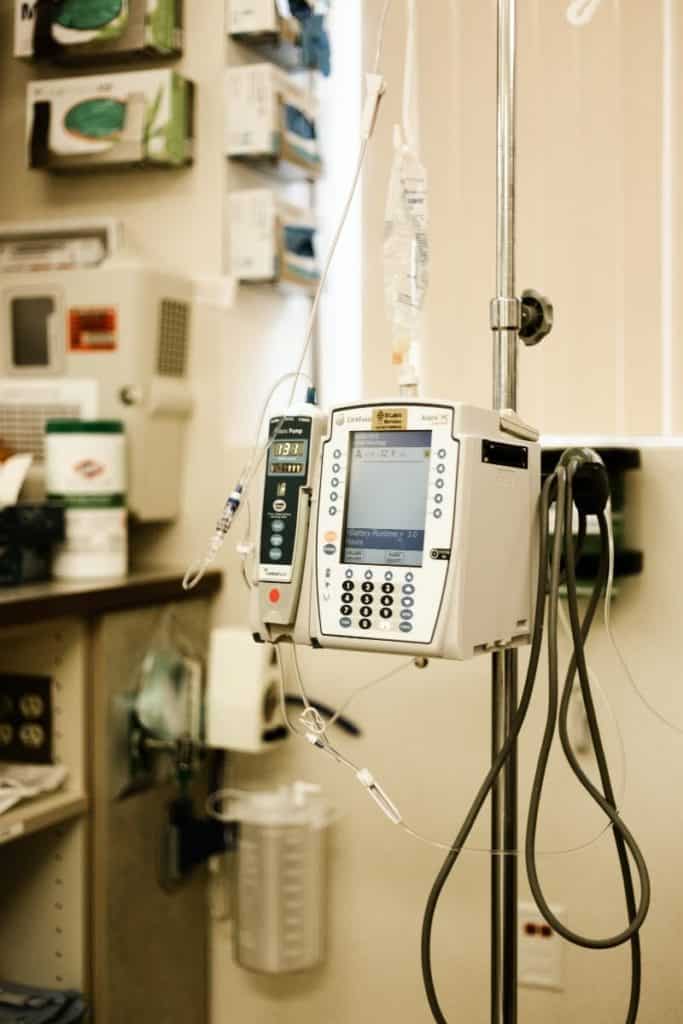
Are you feeling a little lost with this “basic” stuff you “should know” like using an IV pump, priming a line and using a syringe driver? You’re not alone.
Why not come into work 30 minutes earlier by yourself, with your educator, with another grad or new staff member who is also struggling, borrow a pump and practice in the side room for a while?
Use YouTube or simply Google help guides online while you’re not rushed.
Try giving yourself different situations you may have had in the past and program them in, plus practice priming the line.
It’s amazing what you’ll find and how fewer your “air alarms” will be when you’re not rushed or stressed.
The same goes here for other charting paperwork. Are you familiar with all the charts commonly used? If not, take the time to learn them.
Take a few home after work and look at them while in the bath with your feet up.
3. Observe
I used to watch the pathology staff like a creep to learn clever techniques in taking blood.
Watch staff doing skills you commonly need to perform and see if there is a better, more effective way you didn’t even know existed.
Mastering Time Management as a New Nurse
“You need to work on your time management”…
How many times have you heard this in the last couple of months? Hearing this two-word phrase doesn’t make it any easier does it?
Here are some issues with time management you’re probably feeling:
- Immediately after hearing report/handover, you feel like vomiting or running away because you’re so overwhelmed with the number of jobs on your ‘list.’
- Everyone needs you right this second and you just can’t get here.
- You’re leaving work late every day
- You’re feeling stressed for most, if not all of the shift
Solutions for New Nurses:
Immediately post getting report/handover, go and say hello to your patients.
Are they all breathing? Are they in pain? Do they have a quick question you can answer? Do they have their buzzer and can call you if need be?
Simply spending a short 5 minutes saying hello allows you to start developing therapeutic relationships, making a plan for your shift and working out who is the sickest.
These are pearls of information, critical for your time management and organization of the shift. After this 5 minute intro, ask yourself… Who has the chance to deteriorate the quickest? It might be a good idea to attend to these patients first.
After this 5 minutes, breath, you now have a visual of everyone and can start your day with confidence.
Everyone doesn’t need you right this second.
They think they do, but in reality, (most) of them don’t. After hearing a very brief handover of the issue eg, “Betty* in room 4 wants another blanket” v.s “I can’t breathe or I feel very SOB”….weigh up how urgent the problem is.
You will get better at this, but for now get used to saying, “thanks for bringing that to my attention” and then work out how important that thing is in relation to everything else. You can only do your best, remember that.

It’s okay to make people wait, but be honest when they can expect an answer. Giving family members and patients reading materials saves me a lot of time and keeps them occupied without getting stressed.
Check out the patient education information on their condition/situation available on the computer and print a few copies out. This works brilliantly.
Bonus Tip:
Can the family help out getting the blanket, adjusting the pillow, making a cup of tea and even help you feed their family member if correctly positioned and are given the right meal as per speech pathology?
Is there somebody around like an MA (medical assistant) or CA (clinical assistant) to help you out? Use your resources and don’t be afraid to be a little creative.
Also, instead of saying, “I’ll be back” let them remind you by giving them the call bell and asking them to press it in 15, 20 or 30 minutes depending on how urgent the situation.
It’s one less thing you need to remember and makes the patient feel like they are in control of their health.
You’re Leaving Work Late Every Day
Notes and documentation are generally the things which hold you up, right? Instead of leaving all your notes to the end, why not do it as you go?
This way you won’t forget anything at the end of your shift and you won’t be stuck if something unexpected happens within an hour of your shift finishing.
Plus, your notes will be 1000 times better!
You probably think you don’t have time but again, weigh up those ‘jobs’ which are outstanding.
Can they wait 15 minutes while you scribble a few notes, update fluid balance charts and record your I’s and O’s (input and output)?
Some days you will leave late regardless of how awesome your time management will become.
Things happen. People are sick. It’s unfortunately, the nature of the nursing beast.
But for day-to-day practice, seek advice from a nurse who seems to have their ducks in a row, what are they doing that you could start implementing?
To stop feeling stressed, carry a brain sheet, keep your rooms tidy and keep track of the time
Carry a brain sheet and prepare for report/handover.
A brain sheet is a structured printout with space to document your assessments. Click here to take a look at some great examples.
If you’re scared to give report/handover, don’t think of it as a test and use your brain sheet to guide you.
It’s your chance to tell a few structured stories using the ISBAR approach or whatever your facility uses to structure handover/report.
It’s your chance to say how awesome you have been and all the cool things you’ve done. Take a couple of minutes to prepare, by reviewing lab results, radiology tests and the plan for the future.
Going in blind will leave you unprepared for questions making you feel really stressed, so use a tool to help until you feel more confident.

Keep Your Rooms Clean
The more stuff and unnecessary items laying around your patient’s room the more your brain has to process (and I don’t think there is too much more space in there, right?).
Put away the patients clothing, throw away the rubbish and arrange medical equipment, like trachy care (if it needs to be on show) in a neat and tidy manner.
Other staff notice and the patients and their families will appreciate it.
This may seem insignificant, but remember to focus on the things you’re good at for now and do those things well consistently. You will only build on things from there.
Keep Track of the Time With a Watch Not Your Phone
Don’t rely on the clocks as they often totally forget about day-light savings! And don’t rely on your phone either.
Even though you could simply be looking at the time or doing a calculation, to the patient your browsing Facebook and texting your friends. Not a great look.
Here is a quality Fob watch if you’re in the market for one.
For the men, here’s one for you which is perfect for night shift too, Glow in the Dark Fob Watch.
Giving Medications Safely + Knowing What They Do as a New Nurse
Here are some issues with giving medications you’re probably feeling:
- “I’m giving medications late”
- You’ve given the wrong medications to the right person and visa versa
- You have no idea what the medication is but you’re feeling rushed so you give it anyway?
- The doctor is “withholding” the medication or even “ceased” a drug and you don’t know why
- Other nurses are able to link lab reports (pathology values) to medication administration to dictate whether they should give it or not and you lack the skills to do that.
Medication Solutions for New Nurses:
Do you remember when you first learned to ride a bike? How long did it take you? Days, weeks, months… And how many times did you fall off or need to use training wheels?
You CANNOT know every medication that is charted without any prior knowledge. It’s impossible.
So what can you do?
Read and recite the medication order
This may seem basic, but learn this skill and you will continue to do it throughout your entire nursing career, picking up on mistakes others will miss.
Before you dispense, read the entire order to yourself or even softly out loud – line by line. Don’t jump around and read the bits you want. Doing this eliminates a ton of errors.

Keep a Timesheet With When Medications Are Due
IVABS due at 1000, 1400 and 1500 – write it down. Frusemide due at 1430 – write that down too.
You have SO much stuff going on in your brain, don’t rely on your memory until things become second nature.
Be Safe
If you don’t know a medication that’s okay. Use a medication resource book which will be kept in your medication room and look it up.
Does the medication make sense to be given in this situation or does it link to their past history? Or, could the medication be given for another reason?
Linking each medication to why it would be charted is a HUGE development in your nursing practice and I promise things will start to make sense when you do this.
Keep Your Own Medication Diary
Every time you come across a medication you have to look up, write it into a small little pocketbook like the Pocket Notebook ICU Notes you’re carrying around in your scrubs.
you’re carrying around in your scrubs.
Once you get home, familiarise yourself with the route, common doses, how to mix it and with what fluid? This little book became my bible even beyond my graduate year.
If you need a write these medications on the back of the bathroom door at your house, do it.
Slowly the medications you commonly give will become second nature, but make an effort to commit it to memory.
The H&P notebook pack not only comes with the notebook but also reference cards which are super handy. Check it out on Amazon here.
pack not only comes with the notebook but also reference cards which are super handy. Check it out on Amazon here.
Double-Check All Injectable Medications at the Bedside
Don’t cut corners here. I know how busy nursing life can get but take the extra 20 seconds to stop you making a preventable mistake.
You may need to remind others you’re a graduate nurse in case they have forgotten and give you attitude, but these good habits are important for everyone, even the senior nurses.
Think: If you need to inject it – make somebody check and watch you administer.

Can’t Understand the Doctor’s Decision in Regards to Medication? Ask
Pick the pharmacist’s brain. Introduce yourself to them and make yourself a new friend. This is not a lame thing to do!
You will learn some incredible things about crushing medications, medication storage, drug safety and how to do things more effectively to save SO much time.
If they don’t know your patient directly and can’t answer your medication-related questions, ask your buddy or charge nurse to clarify.
Don’t just accept the doctor’s decision regarding medication administration. Remember – you are the advocate and need to speak up for your patient.
Other Medication Tips for New Nurses:
Don’t Be a Sheep
Just because everyone is doing something, it doesn’t make it right.
If something about medication administration or storage feels wrong, it probably is.
At times like this check the hospital protocol then, if you see a discrepancy, inform the charge nurse or call your educator. You are doing everyone a favor.
Learn From Your Mistakes
I know the sick pit feeling in your stomach after making an error.
So slow down, make an effort to do the five rights every time, read the order properly and clarify if you don’t understand.
Don’t just “give it” because that’s what you’ve seen others do or you’re feeling rushed.
Owning up to something you may have stuffed up makes you accountable and respected by your peers and manager. It’s okay, we all make them, but try to learn from it and seek education if you’re not sure what went wrong.
Medication Resources:
If you don’t have a good book to study medications because you threw yours out or sold it after nursing school, thinking you don’t need it anymore…
The Davis’s Drug Guide for Nurses is excellent and comes with a section for assessment recommendations for medication effectiveness. It’s so good. See it now on Amazon.

Related post: An Organized RN’s Essential Holiday Gift Guide For Nurses
Take Away Advice for New Nurses to Stop Feeling Lost and Incompetent
Have you ever been into a hospital as a patient or a family member?
What did you notice about your nurse? Did you see how well they wrote their notes? Did you notice how they handed over? Did you notice how they did 500 things at once?
I’m guessing not.
But I’m what you did noticed is how they interacted with you and your family.
Did they actually listen and then take action with your concerns. Were they able to answer your questions and if not did they go and find the answer?
My biggest advice is to make your patient the center of what you’re doing. They always come first (after your own health of course).
Don’t stop being nice to them. Don’t stop going that extra mile. Remember why you started and hold onto that because this is the stuff that makes it all worthwhile when sh*t hits the fan – literally!
Never stop doing the right thing.
Don’t stop double checking (or triple checking everything), I promise it will get easier. When we become complacent is when mistakes happen. So stick with it and don’t cut corners because it’s ‘easier’ – you may just miss something important.
Work with them. Even in ICU, talk to the family if you can’t communicate with the patient.
Use your supportive words and actions to be on the same page. Be honest if you don’t know and start developing that therapeutic relationship from the start.
Everything else will come.
Thanks for reading our article on how to stop feeling incompetent as a new nurse.
Remember this is part 1 of 3 of our new nurse series
Through this exciting three-part new nurse series, we dive into how to stop feeling incompetent, avoiding getting sick and feeling run down and how to look after yourself as a shift worker. Plus, so much more. Find the links below.
Next, jump to Part 2 (they can be read in any order): Always Sick as a New Nurse? 10 Tricks to Beat The Blues
Or, dive into Part 3: New Nurse Confidence Booster: Why Your Not an Idiot
How is your nursing journey going so far? Let me know in the comments below.
P.s If you missed our New Nurse Survival Kit, click HERE >>>
Cheers,

Disclosure: This page may contain affiliate links, meaning we receive a commission if you decide to make a purchase through our links, but this is at no additional cost to you. Please read our disclosure and privacy statement for more info.
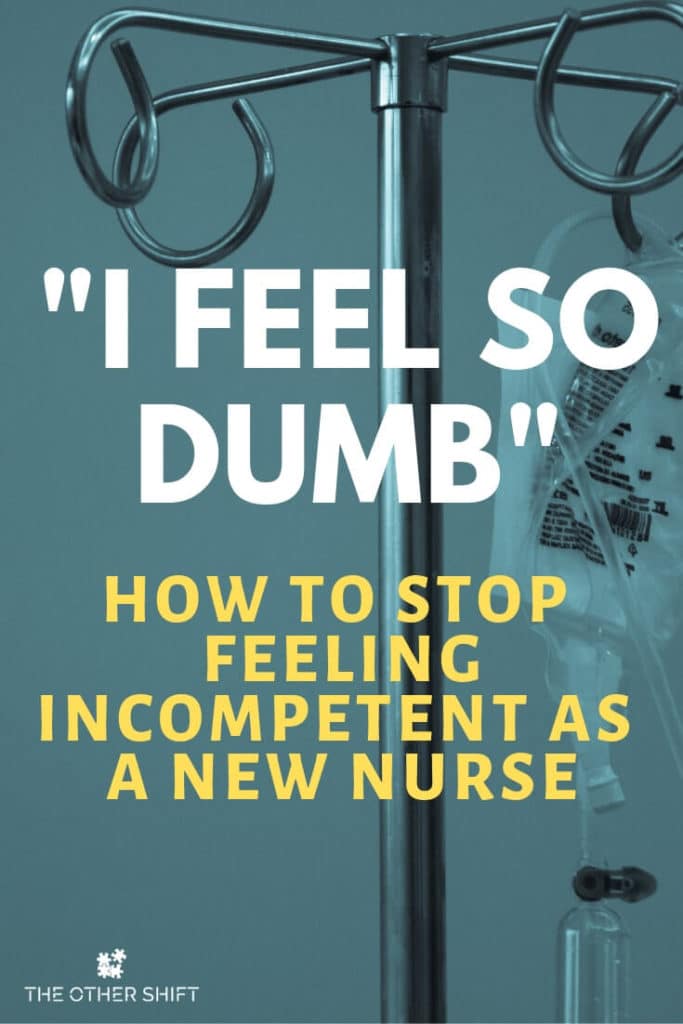
13 thoughts on “Being a New Nurse is Hard. How to Stop Feeling Incompetent”
Leave a Reply
Recent Posts
An examination of the night shift professions, that while sometimes underappreciated, are necessary for civilization, in its current form, to exist. A city can be thought of as a machine. Each...
Culminated from an exhaustive yet well-funded journey into the night, this article will prepare you for life outside of work while being a denizen of the dark. During days off, night shift...




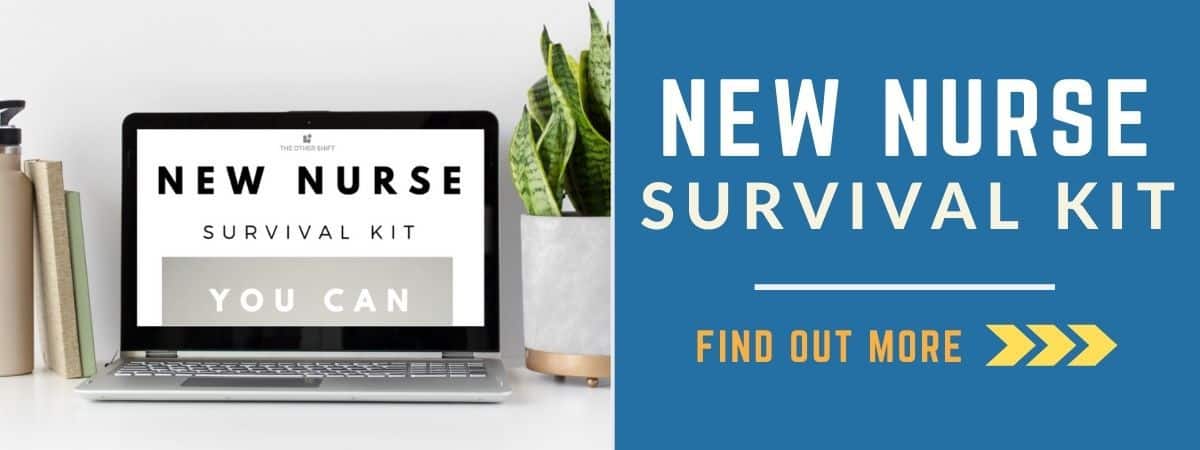
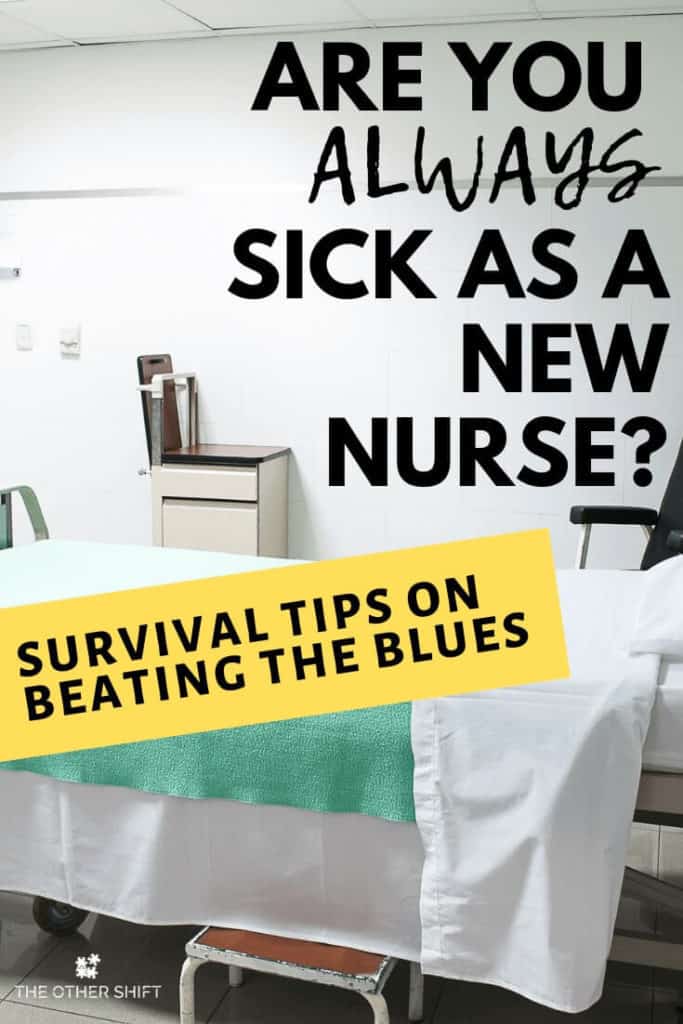
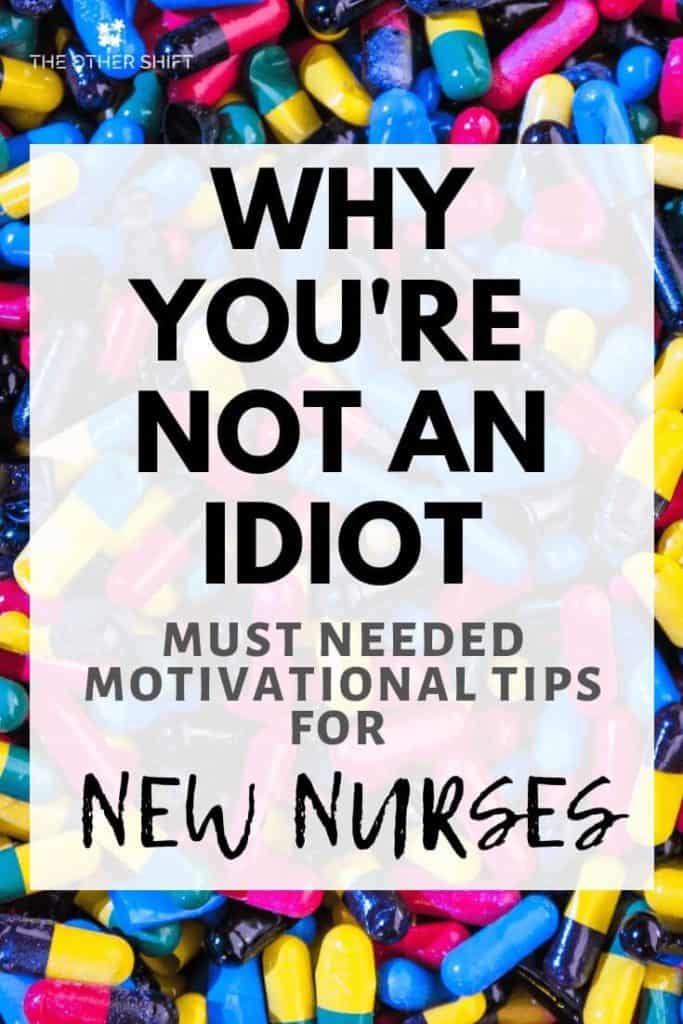
Just transferred to ICU after periop and it’s rough!! I have been off the floor for years so I feel like a new grad again. This article is so helpful. I wish preceptors were this patient.
Hi Aubrey,
Sorry to hear the transition isn’t going as smoothly as you’d probably hoped! Thanks for your kind feedback. Best of luck over the next few weeks. You’ll find your groove again, it may just take a minute.
Thank you SO much for this help. I came to nursing later in life and am beginning my 4th week as brand new old nurse in ER. I have felt like I don’t know a thing and wondered why in the world I am doing this. My first preceptor talked so much and was all over the place and I felt like I was in a tornado and couldn’t think what to ask much less follow her. I asked to switch preceptors to one I have had two shifts who is a little older and feels more steady. I am hoping this will help. I am so grateful for the tips offered to help me learn to organize my time, not be afraid to ask questions and be friendly to the standoffish nurses (who are probably waiting to see if I have staying power). I want to be a part of the team – but more than that, I want to do well and be competant.
Hi Margo,
You are going through what I believe to the hardest part. I know this probably doesn’t help, at all, but keep at it. As a wiser, “older” nurse you have a lot to teach/show the younger staff. The ward it lucky to have you! If you need some inspiration – https://theothershift.com/older-nurse/ This post may help. Please be in contact with us again if we can offer advice or just a ear to listen. Take care. Emma
Terrific article
Thanks, Mason. We appreciate that.
Just graduated and got hired as an RN at a cardiac hospital! Super excited but also super nervous because my last semester was mostly online with NO capstone rotation!!! I feel so unprepared because not only have I been out of school for a couple of months, I also missed out on that one on one capstone training. Reading your article eased my anxiety, and now I feel more confident going into orientation!
Hi Ashley,
Thanks for your message and honesty. Congratulations on your new gig! Take your time, don’t be afraid to ask questions and give yourself time to learn, adjust and enjoy it. We are always here if you need to vent. Good luck. Emma
Amazing article!. Well written, organized and very informative!
Thanks for this article. I’m 45 and have career changed into nursing. I’m 3 mths in and finding it so challenging especially when I was on top of my game in my previous career. This article expressed much of what I’m feeling and has given me good tips moving forward. Thank you!
Ros, what a time to transition to a RN! I’d like to say that things will never be as chaotic and unknown as they currently are, but we need to expect the unexpected right now! Thank you for supporting those who can’t do it themselves and we are glad you’ve found some help in reading our article. Never stop learning and you’ll find this career extremely rewarding in the long run.
I remember those feelings when I was a new nurse more that 45 years ago! The times have changed, but not the feelings!????????????
You will make it -and be great!
Peggy, we love hearing the support from a fellow RN…. Thanks for bringing an extra smile to those reading this article.